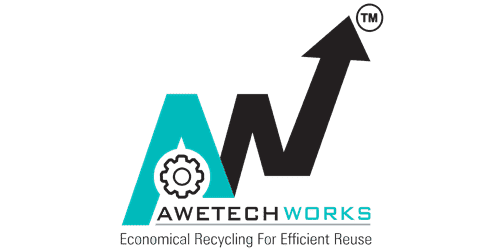

ETP Installation
400+
Waste Water Treated Per Day
70 MLD
Inhouse Manufacturing
Yes
Mega Project
45 MLD ETP at L&T Ludhiana
Effluent Treatment Plant – ETP for Residential / House / Row Houses
| Capacity | Customizable to accommodate varying household sizes and wastewater volumes. |
| Treatment Technique | Utilizes advanced physical, biological, and chemical processes for effective wastewater treatment |
| Inlet Flow Rate | Adjustable to match the wastewater generation rate of residential properties. |
| Water Source | Handles domestic wastewater from toilets, bathrooms, kitchens, and laundry facilities. |
| Automation Grade | Offers user-friendly interfaces with options for semi-automatic or fully automated operation. |
| Operation & Maintenance Support | Includes comprehensive support and maintenance services for hassle-free operation. |
| Compliance | Ensures compliance with local regulations and environmental standards for residential wastewater treatment. |
Compact Design :Space-saving design suitable for residential properties with limited space availability.
Efficient Treatment :Effectively removes contaminants, pathogens, and pollutants from domestic wastewater.
Low Energy Consumption : Energy-efficient operation to minimize electricity costs for homeowners.
Odor Control :Incorporates odor management systems for a pleasant living environment.
Noise Reduction : Operates quietly to minimize disturbance to residents.
User-Friendly Interface :Intuitive interfaces for easy monitoring and control by homeowners.
Low Maintenance :Requires minimal maintenance, reducing the burden on homeowners.
Scalable Solutions :Customizable solutions to meet the specific needs of individual homes or residential complexes.
Designed with the needs of homeowners in mind, residential ETPs feature compact designs, user-friendly interfaces, and low-energy consumption to seamlessly integrate into residential properties. From single-family homes to apartment complexes and row houses, these systems offer scalable solutions tailored to the specific requirements of each household.
customer testimonials
The residential ETP from Awetech Works has revolutionized our household wastewater management It's a game-changer!
Why Effluent Should Be Treated for Residential / Home / House / Row Houses
Effluent treatment for residential properties is crucial for maintaining environmental sustainability, protecting public health, and ensuring the efficient management of wastewater. Here are several compelling reasons why effluent treatment is essential for Residential/Home/House/Row Houses
1.Environmental Preservation:
Treating effluent from residential properties helps prevent pollution of water bodies, soil, and air. By removing contaminants and harmful substances from wastewater before discharge, effluent treatment safeguards ecosystems, preserves biodiversity, and mitigates the impact of human activities on the environment.
2.Public Health Protection:
Untreated effluent can contain pathogens, bacteria, and toxic substances that pose significant health risks to individuals and communities. Proper effluent treatment in residential areas reduces the spread of waterborne diseases, protects drinking water sources, and ensures a safer living environment for residents.
3.Regulatory Compliance:
Many regions have strict regulations governing the discharge of wastewater from residential properties. Effluent treatment ensures compliance with these regulations, including limits on pollutant concentrations, discharge volumes, and water quality standards. Compliance helps avoid legal consequences, fines, and penalties while promoting responsible environmental stewardship.
4.Resource Conservation:
Effluent treatment facilitates the recovery and reuse of valuable resources present in wastewater, such as water, nutrients, and organic matter. By recycling treated effluent for purposes like irrigation, toilet flushing, or landscape maintenance, residential properties can conserve freshwater resources, reduce water consumption, and minimize reliance on external water sources.
3.Regulatory Compliance:
Many regions have strict regulations governing the discharge of wastewater from residential properties. Effluent treatment ensures compliance with these regulations, including limits on pollutant concentrations, discharge volumes, and water quality standards. Compliance helps avoid legal consequences, fines, and penalties while promoting responsible environmental stewardship.
4.Resource Conservation:
Effluent treatment facilitates the recovery and reuse of valuable resources present in wastewater, such as water, nutrients, and organic matter. By recycling treated effluent for purposes like irrigation, toilet flushing, or landscape maintenance, residential properties can conserve freshwater resources, reduce water consumption, and minimize reliance on external water sources.
5.Odor and Aesthetic Improvement:
Untreated sewage and wastewater can emit foul odors and detract from the aesthetic appeal of residential areas. Effluent treatment eliminates odors, reduces visual pollution, and enhances the overall ambiance and livability of neighborhoods. Treated effluent is odorless, clear, and safe, contributing to a cleaner and more pleasant living environment.
6.Property Value Enhancement:
Residential properties equipped with efficient and environmentally friendly effluent treatment systems often command higher market value and attract discerning buyers. The presence of a well-maintained effluent treatment facility reflects the homeowner’s commitment to sustainability, health, and quality of life, making the property more desirable in the real estate market.
7.Community Well-Being:
Effluent treatment fosters community well-being by promoting social responsibility, civic pride, and collective action to protect the environment. Residential areas with effective wastewater management systems experience improved public health outcomes, stronger community cohesion, and enhanced quality of life for residents of all ages.
8.Long-Term Cost Savings:
While initial investment costs may be incurred for installing and operating effluent treatment systems in residential properties, the long-term benefits far outweigh the expenses. By reducing water consumption, minimizing environmental impact, and avoiding potential fines or legal liabilities, effluent treatment ultimately leads to cost savings and economic efficiency for homeowners and communities.
Effluent Treatment Plant (ETP) Process for Residential / Home / House / Row Houses +


At the heart of efficient wastewater management for Residential/Home/House/Row Houses lies the Effluent Treatment Plant (ETP), a comprehensive system designed to treat and purify household wastewater before safe discharge or reuse. Here’s an overview of the ETP process customized for residential applications
1.Collection and Pre-Treatment:
The ETP process begins with the collection of wastewater from various sources within residential properties, including toilets, sinks, showers, and washing machines. The raw wastewater undergoes pre-treatment, where larger solids, debris, and grit are removed through physical processes such as screening and sedimentation.
2.Primary Treatment:
Following pre-treatment, the wastewater enters the primary treatment phase, where further separation of solids and liquids occurs. In this stage, settling tanks or clarifiers facilitate the gravitational settling of suspended solids, while scum and grease are skimmed off the surface. Primary treatment reduces the organic load and turbidity of the wastewater.
3.Secondary Treatment:
After primary treatment, the wastewater undergoes secondary treatment to further break down organic pollutants and pathogens. Biological processes, such as activated sludge treatment or trickling filters, provide an environment for beneficial microorganisms to metabolize organic matter and remove nutrients like nitrogen and phosphorus. Secondary treatment significantly reduces biochemical oxygen demand (BOD) and ensures the biological stability of the effluent.
4.Tertiary Treatment:
In the tertiary treatment phase, the treated wastewater undergoes additional polishing to meet stringent quality standards and regulatory requirements. Advanced treatment techniques such as filtration, disinfection, and nutrient removal are employed to remove remaining contaminants, pathogens, and trace pollutants. Tertiary treatment enhances the clarity, purity, and safety of the effluent for environmentally sustainable disposal or reuse.
5.Disinfection and Final Discharge or Reuse:
Before final discharge or reuse, the treated effluent undergoes disinfection to eliminate any remaining pathogens and ensure public health protection. Common disinfection methods include chlorination, ultraviolet (UV) irradiation, or ozonation, depending on the desired level of treatment and regulatory requirements. Once treated and disinfected, the effluent is ready for safe discharge into receiving water bodies, infiltration into the ground, or non-potable reuse applications such as irrigation or landscape watering.
6.Environmental Sustainability and Resource Recovery:
In line with principles of environmental sustainability, the ETP for residential applications emphasizes resource recovery and waste minimization strategies. Effluent streams containing valuable resources such as water, nutrients, and organic matter are carefully managed and optimized for recovery, contributing to cost savings and reducing the ecological footprint of residential wastewater management. By integrating innovative technologies and best practices, the ETP strives to achieve not only regulatory compliance but also long-term environmental stewardship and community well-being.
What Makes Us Different ?
Right Approch
Effluent Characteristics & Site Conditions Total cost of ownership over 10 Years of lifetime. Legal Compliance and desired treated water parameters.
Clean Commitment
On time project execution, periodic Operation and Maintenance training and perfect paperwork is our core strength. We consider our job is done when our client gets habitual of using the recycled water and gets all legal clearance from authorities.
Expert Solutions
Our team of experts creates the most economical, efficient and Maintenance free design that will be best for your application.
Frequently Asked Questions [FAQ]
An Effluent Treatment Plant (ETP) for residential use is a system designed to treat wastewater generated from household activities before it is discharged into the environment. It helps ensure that the wastewater meets environmental standards and minimizes the impact on ecosystems.
Residential properties need an Effluent Treatment Plant (ETP) to manage and treat wastewater effectively, protecting the environment and public health. It ensures that pollutants are removed from household wastewater before it is released into water bodies or reused for other purposes.
An Effluent Treatment Plant (ETP) in a residential setting typically involves processes such as physical filtration, biological treatment, and chemical disinfection to remove contaminants from wastewater. These processes help improve the quality of water before it is discharged or reused.
The components of a residential Effluent Treatment Plant (ETP) may include a collection system, primary treatment unit (such as a septic tank), secondary treatment unit (such as a biological reactor), tertiary treatment unit (such as filtration or disinfection), and a disposal or reuse system.
An Effluent Treatment Plant (ETP) may not be necessary for all residential properties, especially in areas where centralized sewage treatment systems are available. However, for properties in remote or rural areas or those with specific environmental regulations, an ETP may be required.
The benefits of installing an Effluent Treatment Plant (ETP) in a residential property include improved water quality, protection of the environment, compliance with regulations, and potential cost savings from reduced water usage and disposal fees.
The maintenance requirements for an Effluent Treatment Plant (ETP) for residential use vary depending on factors such as the system's design, capacity, and usage. Generally, routine inspections, cleaning, and servicing are recommended to ensure optimal performance.
Yes, an Effluent Treatment Plant (ETP) can be installed in existing residential properties, although the feasibility and cost-effectiveness may vary depending on factors such as available space, soil conditions, regulatory requirements, and budget considerations.
The environmental benefits of using an Effluent Treatment Plant (ETP) in a residential setting include reducing pollution, protecting water bodies and ecosystems, conserving water resources, and promoting sustainable living practices.
An Effluent Treatment Plant (ETP) for residential use is designed to treat typical household wastewater generated from activities such as bathing, laundry, dishwashing, and toilet flushing. However, it may not be suitable for treating industrial or hazardous waste.
Yes, depending on local regulations and the size and scope of the Effluent Treatment Plant (ETP), permits or approvals may be required from relevant authorities before installation. It's essential to consult with local authorities and comply with applicable regulations.
Yes, Effluent Treatment Plants (ETPs) can be customized to meet the specific requirements of a residential property, including factors such as wastewater volume, quality, space availability, and budget constraints. Customization ensures optimal performance and efficiency.
Potential challenges associated with installing and operating an Effluent Treatment Plant (ETP) in a residential property may include site constraints, regulatory compliance, maintenance requirements, upfront costs, and public acceptance.
Yes, an Effluent Treatment Plant (ETP) for residential use can be integrated with rainwater harvesting systems to optimize water management and promote sustainability. The treated wastewater can be reused for purposes such as irrigation or toilet flushing.
When properly designed, installed, and maintained, an Effluent Treatment Plant (ETP) in a residential property poses minimal health risks. However, it's essential to follow recommended hygiene practices and ensure proper maintenance to prevent contamination and health hazards.
Factors to consider when selecting an Effluent Treatment Plant (ETP) for a residential property include wastewater volume and composition, treatment efficiency, space availability, regulatory requirements, maintenance needs, and budget constraints.
Chemical facilities manage and dispose of sludge generated during effluent treatment through dewatering, stabilization, and proper disposal methods in compliance with regulatory requirements for solid waste management and environmental protection.
Yes, modern Effluent Treatment Plants (ETPs) often come equipped with remote monitoring and control systems that allow users to monitor performance, receive alerts, and adjust settings remotely using smartphones or computers for convenience and efficiency.
Yes, Effluent Treatment Plants (ETPs) can typically be upgraded or expanded in the future to accommodate changing needs in a residential property. This may involve adding additional treatment units, increasing capacity, or integrating new technologies as required.
Effluent Treatment Plants (ETPs) for residential use typically offer superior treatment performance and environmental impact compared to conventional septic systems. They employ advanced treatment processes to remove a wider range of contaminants and promote sustainable wastewater management practices.
Join Over +15,000 Happy Clients!








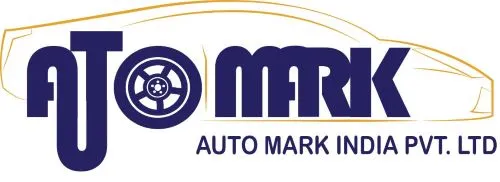



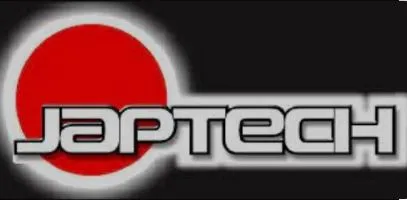







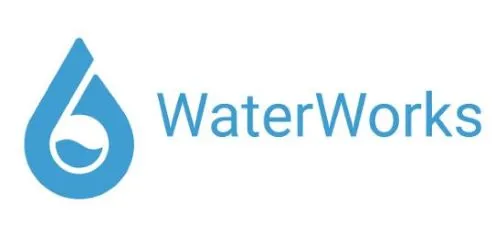



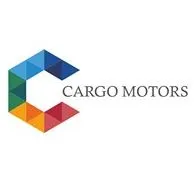

















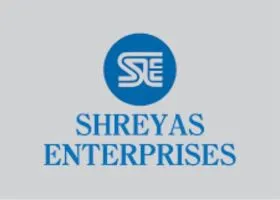

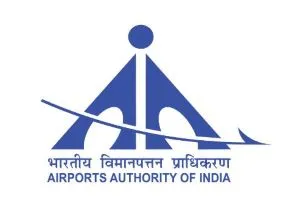

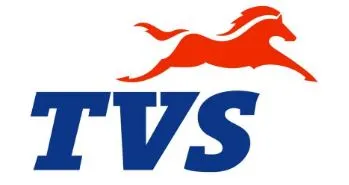















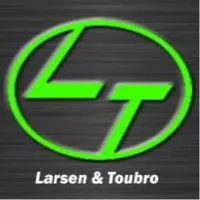









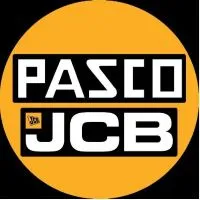







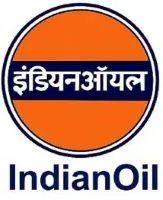

Salient Features
Concept to Commissioning
In-house team for Design. Engineering, Martufacturing, Execution and Service support gives full control over project ownership and quality
Experienced Team
Entire team possess average Industrial Experience of 7+ Year and have proven track record
Tailor Made Solutions
Our wide experience of solution design in multiple technologies enable us to choose technology that is most economical and efficient in long run.
Future Ready Products
Automation is the heart of every Awetech product. Our products performance can be monitored from remote location.
Life Cycle Management
We can take complete responsibility of product operation, maintenance, upgradation and comply latest pollution control board norms.
Comply Pollution Norms
Our design philosophy and documentation is in line with quidelines set by legal authorities. We provide support to take required approvals from pollution department
Awetech Works – The Leading Solution Provider of Effluent Treatment Plant (ETP) for Residential / Home / House / Row Houses
At Awetech Works, we are committed to revolutionizing residential wastewater management through innovative and sustainable solutions. As the leading provider of Effluent Treatment Plant (ETP) systems for Residential/Home/House/Row Houses, we combine expertise, technology, and a passion for environmental stewardship to deliver exceptional results.
Our Expertise: Backed by a team of dedicated engineers, environmental specialists, and industry experts, Awetech Works boasts unrivaled expertise in designing and implementing ETP systems tailored for residential applications. With years of experience and a deep understanding of wastewater treatment processes, we are adept at addressing the unique challenges faced by homeowners and communities in managing household effluent.
Tailored Solutions: At Awetech Works, we recognize that each residential property has its own set of requirements, space constraints, and environmental considerations. That’s why we offer customized ETP solutions designed to meet the specific needs of homeowners, housing developments, and residential communities. Whether it’s treating sewage from single-family homes or implementing decentralized wastewater treatment systems for neighborhoods, we work closely with our clients to design solutions that are efficient, cost-effective, and environmentally sustainable.
Commitment to Sustainability: Sustainability is at the core of everything we do at Awetech Works. Our ETP systems are engineered to minimize environmental impact, conserve resources, and promote responsible water management practices. By incorporating cutting-edge treatment technologies, optimizing resource recovery, and emphasizing energy efficiency, we help residential communities reduce their carbon footprint and operate in harmony with the natural environment.
Customer-Centric Approach: At Awetech Works, we prioritize customer satisfaction and strive to exceed expectations at every stage of the project. From initial consultation and system design to installation, commissioning, and ongoing support, we are committed to delivering value, quality, and reliability. Our dedicated team is always available to provide technical expertise, guidance, and assistance, ensuring a seamless and rewarding experience for our clients.
Why Choose Awetech Works?
- Industry Leadership: As the preferred choice for ETP solutions in the residential sector, Awetech Works sets the standard for excellence and innovation.
- Customized Solutions: Our tailored ETP systems are designed to meet the unique needs of homeowners, housing developments, and residential communities.
- Sustainability Focus: We are committed to sustainability, offering environmentally friendly solutions that promote resource conservation and environmental stewardship.
- Customer Satisfaction: Our customer-centric approach ensures that every client receives personalized attention, exceptional service, and results that exceed expectations.
- Reliability and Expertise: With a track record of success and a team of skilled professionals, Awetech Works delivers reliable, high-quality ETP solutions backed by years of industry experience.
Join Us in Building a Cleaner, Greener Future: At Awetech Works, we are dedicated to partnering with residential communities in building a cleaner, greener future for all. Together, we can transform wastewater management, protect the environment, and create healthier, more sustainable living spaces for generations to come.
Our Design Philosophy
Analyze & Inspect
"You cannot improve those things
which you can not evaluate”.
✓ Analyze Water or Waste Water
Parameters.
✓ Inspect site to check availability of
Space and utilities.
Understand Application
Our Sales professionals will take detailed note of your requirement & challenges. Factors like Future expansions, end use of Water and Water depletion rate plays a very important role product designing.
Technology Selection
" Wrong selection may save you some penny initially but take out far more during operation & maintenance”. Thus, technology selection considering the soaring prices of Electricity, Manpower, Space, chemical and consumables is essential.
Design & Manufacturing
As a standard procedure we first make to-the-scale 3D design of entire project with plumbing and other connections. After discussing it with client we starts manufacturing tailor made unit in our state-of-the-art facility.
Quality Inspection
Our Ever plant has to go through the stringent Quality test, where we test the strength of fabrication, Anti Corrosion coating, Dimensions, Water leakage test and product finishing.
ENQUIRE NOW
Served Locations
-
Uttar Pradesh (UP):
Kanpur; Lucknow; Ghaziabad; Agra; Varanasi & more… -
Madhya Pradesh (MP):
Indore; Bhopal; Jabalpur; Gwalior; Ujjain & more… -
Rajasthan:
Jaipur; Jodhpur; Kota; Bikaner; Ajmer & more… -
Jammu and Kashmir (J&K):
Srinagar; Jammu -
Gujarat:
Ahmedabad; Surat; Vadodara; Rajkot; Bhavnagar & more… -
Punjab:
Ludhiana; Amritsar; Jalandhar; Patiala; Bathinda & more… -
Delhi National Capital Region (NCR):
Delhi; Gurgaon (Gurugram); Noida; Faridabad; Ghaziabad & more… -
Maharashtra:
Mumbai; Pune; Nagpur; Thane; Nashik & more…


